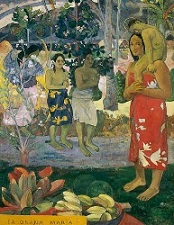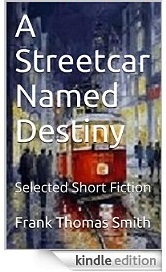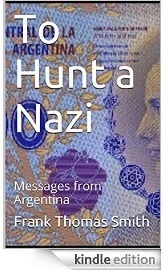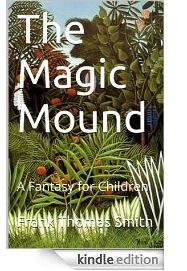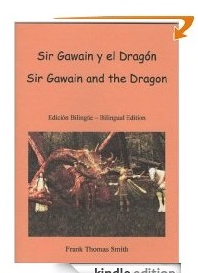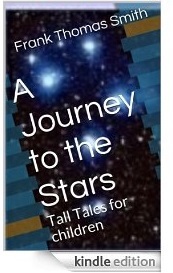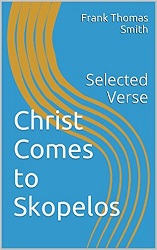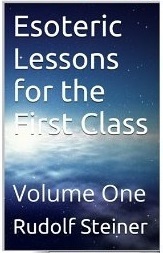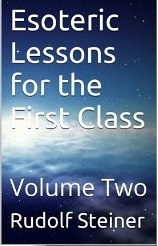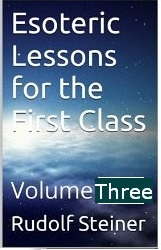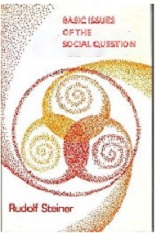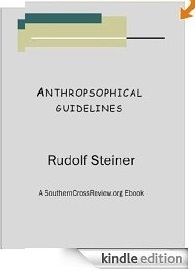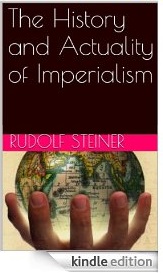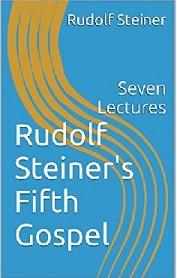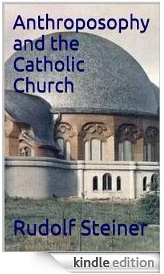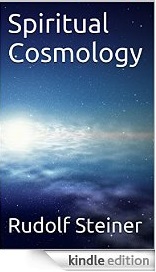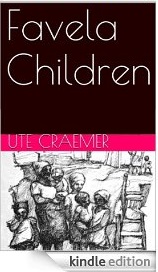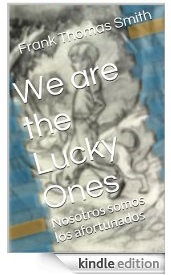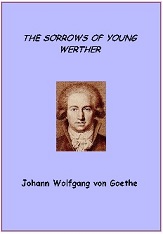The Southern
Cross Review e-Book Library
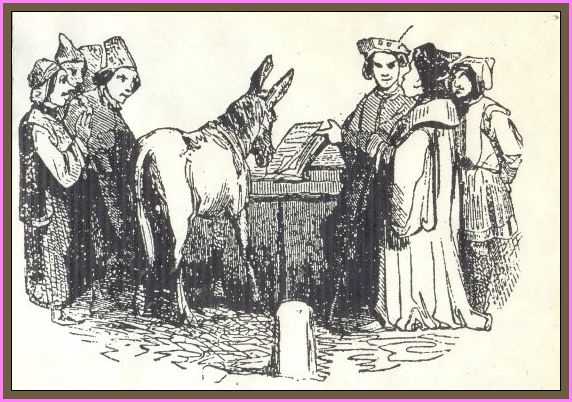
These eBooks are in pdf format and are free of charge. To order send an email to SouthernCrossReview at gmail.com. In the subject box type "ebook" and in the body the title of the book. We will send it to you by email, sometimes on the same day.
The
e-books available in our library, according to category, are:
Fiction and Drama
HeyZeus - A Second Coming in Brooklyn (A mystery play in seven scenes) by Frank Thomas Smith
A young man - Thomas - meets an African-American couple walking on the lake in Brooklyn's Prospect Park. He suspects that the man - HeyZeus - is Jesus, but has almost insurmountable difficulty convincing anyone else - until Alma appears, a young woman who believes him, but may have another agenda. Thomas first meets unbelief in his friends, his colleagues, his fiance, a psychiatrist, a bishop and, finally, himself.
Love in the Time of Spies - a novella by Frank Thomas Smith
A love story between two spies during the Cold War, an East German woman and an American man, each working for their respective clandestine agencies. It all unfolds over fifteen years in Germany, Argentina, Paraguay and, finally, the United States. It asks the question: is such a love viable under such adverse geopolitical circumstances?
110 pages.
A Streetcar Named Destiny by Frank Thomas Smith
Sixteen short stories from the sublime to the funny, from Europe to the United States and South America. These stories are not so much about the places, but what the people who live in them feel and do. Fate, destiny or karma plays a significant role in all of the stories, as it does in life itself. The title story begins in Prague during the First World War when two star-crossed lovers meet in a streetcar, and ends in San Francisco during the Iraq War almost a hundred years later, when they meet again in another streetcar. The last story ends where all roads lead: Rome.
To Hunt a Nazi - Messages from Argentina by Frank Thomas Smith
Short stories with Argentina as geographical and spiritual background. A Nazi war criminal is hunted and found; an American tourist is rolled by a beautiful whore; an idiot is murdered; a downsized gringo finds himself and love far from home. An English teacher rescues a blasphemous but cute hippie from the police chief's clutches---and more to make you laugh and hold your breath, maybe even shed a tear or two.
Children's Corner
The Magic Mound by Frank Thomas Smith
"The Magic Mound" is for children age 9 and up - all the way up, as many parents who have enjoyed the book in Spanish have informed me. An illustrated Spanish translation was published in a print version in 2000 by Longseller S.A., Buenos Aires. It was a favorite Argentine Waldorf primary school reader. Now the English original is available as an e-book. It's about two brothers from a Brazilian favela (slum) who stumble into a fantasy land where they are charged with rescuing a girl from...Well, it's all in the book, which beyond the adventure itself includes references to life, death and reincarnation. Both you and your children will surely enjoy it.
Sir Gawain and the Dragon/Sir Gawain y el Dragón by Frank Thomas Smith, Translated by María Teresa Gutiérrez
A bilingual (English-Spanish) Children's book about Sir Gawain, the most dashing member of King Arthur's round table, when he was a boy and just starting out on his career of saving damsels from dragons and giants. This little book has been found to be an excellent assistant for teaching both English and Spanish as foreign languages.
Edición bilingüe (inglés-español) de un relato para niños sobre Sir Gawain, el más gallardo de los caballeros de la Mesa Redonda del Rey Arturo, cuando era niño y se iniciaba en su carrera de salvar damiselas de dragones y gigantes. Este pequeño libro ha resultado ser una excelente herramienta para la enseñanza del inglés y del español como lenguas extranjeras.
A Journey to the Stars - and other stories
by Frank Thomas Smith
In A Journey to the Stars, two children – Caroline and Nicky – travel through the constellations accompanied by Pegasus, the winged horse.
Other stories: Grandma Butterfly
The Seventh Birthday
How the Donkey Got its Cross
Juancito Hummingbird
My Cat is a Magician
The Lemonade Sellers
The Mosquito that bit a balloon
Sir Gawain and the Dragon
Lost in the Woods
Poetry
Christ Comes to Skopelos - selected verse by Frank Thomas Smith
From Brooklyn to Buenos Aires, from Germany to Greece: wry, witty and heartfelt poems that are beyond the traditional, while side-stepping the modern.
Christ consents to be called
To Skopelos
One Easter Sunday
Several years before his year
Two-thousand.
They'd been calling him continually
In all their white-walled
Icon-laden churches,
Never expecting he'd hear their songs...
Anthroposophy
Esoteric Lessons for the First Class of the Free School for Spiritual Science by Rudolf Steiner - Volume One
After the re-founding of the Anthroposophical Society at Christmas 1923, Rudolf Steiner began giving esoteric lessons to members of the Free School for Spíritual Science at the Goetheanum in Dornach, Switzerland. His original intention was that the Free School was to have three classes. However, due to Rudolf Steiner's untimely death in March of 1925, he was only able to complete the first of the planned three classes. This first volume comprises Lessons one through nine. Translated by Frank Thomas Smith.
This book is now only available free of charge in pdf format. Click here Send the email with "eBook" in the subject box and "First Class Volume One" in the message box.
Esoteric Lessons for the First Class of the Free School for Spiritual Science by Rudolf Steiner - Volume Two
Lessons ten through nineteen for members of the First Class of the Free School for Spiritual Science. Lessons ten through nineteen.
Translated by Frank Thomas Smith.
This book is now only available free of charge in pdf format. Click here Send the email with "eBook" in the subject box and "First Class Volume Two" in the message box.
Esoteric Lessons for the First Class of the Free School for Spiritual Science by Rudolf Steiner - Volume Three
Recapitulation" lessons for members of the First Class of the Free School for Spiritual Science. Lessons one through seven. After completing the nineteen lessons included in Volumes One and Two, so many new members wished to attend that Rudolf Steiner decided to give these so-called "recapitulation" lessons. So much new material was introduced, however, that a third volume was considered appropriate.
Translated by Frank Thomas Smith.
This book is now only available free of charge in pdf format. Click here Send the email with "eBook" in the subject box and "First Class Volume Three" in the message box.
Basic
Issues of the Social Question by Rudolf Steiner
Basic
issues of the Social Question was written in 1919 for the
German-speaking peoples of central Europe. It deals with the
social problems of that time and suggests solutions. The question
therefore arises: Is this book still relevant today, in a new
millennium, for a worldwide readership? In order to answer
this question, let us first look at the book's very last
paragraph: One can anticipate the experts who object to the
complexity of these suggestions and find it uncomfortable even to
think about three systems cooperating with each other, because
they wish to know nothing of the real requirements of life and
would structure everything according to the comfortable
requirements of their thinking. This must become clear to them:
either people will accommodate their thinking to the requirements
of reality, or they will have learned nothing from the calamity
and will cause innumerable new ones to occur in the future.
Translated by Frank Thomas Smith. pdf format free of charge. Click here Send the email with "eBook" in the subject box and "Basic Issues" in the message box.
Anthroposophical
Guidelines by Rudolf Steiner
185
Guidelines and short essays which Rudolf Steiner gave to members of
the Anthroposophical Society in 1924 and 1925, that is, until his
death. Number 1 can be called a definition of anthroposophy: "1.
Anthroposophy is a path of knowledge which would guide the spiritual
in the human being to the spiritual in the cosmos. It manifests as a
necessity of the heart and feeling. It must find its justification in
being able to satisfy this need. Only those who find in anthroposophy
what they seek in this respect can appreciate it. Therefore only
those who feel certain questions about the nature of man and the
world as basic necessities of life, like hunger and thirst, can be
anthroposophists." Translated by Frank Thomas Smith
Send an email to SouthernCrossReview at gmail.com with "ebook" in the subject box and "Guidelines" in the message box.
The
History and Actuality of Imperialism by Rudolf Steiner
In
1920 Rudolf Steiner had already foreseen that the future
imperialism would be economic rather than military or
nationalistic. In these three lectures he describes the history of
imperialism from ancient times to the present and into the future.
The anglo-american would play an increasingly important role in
future developments, so the English visitors who attended must
have been especially attentive.
Translated by Frank Thomas Smith
Rudolf Steiner's Fifth Gospel: Seven Lectures
Early in the twentieth century Rudolf Steiner, the founder of Anthroposophy, gave a series of lectures concerning what he called "The Fifth Gospel", essentially but not exclusively covering the years between Jesus' twelfth and thirtieth years - those not covered in the four canonical gospels. This book contains the five lectures he gave in Oslo, Norway, and the two he gave Cologne, Germany in 1913.
Translated by Frank Thomas Smith
The complete Fifth Gospel lectures are available in kindle and paper, in a different translation, from the Rudolf Steiner Press, UK
El Quinto Evangelio de Rudolf Steiner - Dos Conferencias
A comienzos del siglo veinte Rudolf Steiner, fundador de la Antroposofía, dio una serie de conferencias sobre lo que denominó “El quinto evangelio”, que comprendía esencial pero no exclusivamente la vida de Jesús entre los doce y los treinta años –periodo no cubierto por los cuatro evangelios canónicos. Este libro contiene las dos conferencias que diera en Colonia, Alemania, en 1913.
Anthroposphy and the Catholic Church by Rudolf Steiner
Three lectures by Rudolf Steiner in 1920 concerning the history of the Catholic Church, its dogmas, its teachings against individual freedom, its Popes and its relations to anthroposophy and to him. The author reveals how members and clerics of the Church had unjustly criticized and attacked Rudolf Steiner using falsehoods and slander.
Spiritual Cosmology by Rudolf Steiner
Three lectures given by Rudolf Steiner in Berlin in 1904 for members of the Theosophical Society, nine years before he founded the Anthroposophical Society. In the lectures he outlines the evolution of the earth and humanity from their very beginnings, often using theosophical terminology.
Translation: Frank Thomas Smith
Other authors
Favela
Children by Ute Craemer
Ute
Craemer is an educator and social worker who has dedicated over
thirty years of her life teaching and nurturing the poor children of
the favelas (slums) in Brazil. As an experienced Waldorf teacher, she
has been able to understand the needs of the children and their
families and provide them with the spiritual nourishment they cry out
for. Favela Children is a moving and informative account of Ute's
Craemer's work in the favelas and of her personal development.
Everyone interested in education and social development will want to
read this book. It was originally published in German and went
through several editions. It is published here for the first time in
English.Translated
and with an introduction by Frank Thomas Smith - 215 pages
We Are the Lucky ones - Nosotros somos los afortunados by Frank Thomas Smith
A bilingual (English-Spanish) essay about mortality and the possibility of immortality through reincarnation . A manuscript which deals with this subject is found in Argentina by a boy who is walking with his dog in the woods. The anonymous author, "Z", finds his way to the answers he seeks through Rudolf Steiner's anthroposophy and Waldorf education. 17 pages
The Sorrows of Young Werther by Johann Wolfgang von Goethe
"I have carefully collected whatever I have been able to learn of the story of poor Werther, and here present it to you, knowing that you will thank me for it. To his spirit and character you cannot refuse your admiration and love: to his fate you will not deny your tears.
And you, good soul, who suffers the same distress as he endured once, draw comfort from his sorrows; and let this little book be you friend, if, owing to fortune or through your own fault, you cannot find a dearer companion."
"Rich
in Spirit - Life in the Favelas of Brazil"
by Ute
Craemer. 53 pages.
A long-awaited update to the above book,
showing the encouraging growth and development of Ute Craemer's
and her co-workers' work a quarter of a century
later.
More/order
"Los
niños entre luz y sombras"
por Ute Craemer. 134
pages.
El único libro de Ute Craemer en Español
- en el cual ella describe sus experiencias humanas y pedagógicas
con los niños y adultos en las favelas de
Brasil.
More/Order
"The
Soul of Man under Socialism"
by Oscar Wilde. 26 pages.
In
a brilliant essay, the arch-individualist Oscar Wilde gives us
his
view of a kind of utopian socialism.
More/Order
"Civil
Disobedience"
by Henry David Thoreau. 28 pages.
Thoreau's
famous essay was the inspiration for Gandhi, Martin Luther King
and others.
More/Order
"Walden
- or, Life in the Woods"
by Henry David Thoreau. 160
pages.
Thoreau's enormously influential description of his
attempt to live by himself accompanied only by his thoughts,
nature and Walden Pond.
More/Order
"Areopagitica"
by
John Milton. 33 pages.
A speach for the liberty of unlicensed
printing to the parliament of England. Milton's impassioned plea
against government and church censorship.
More/Order
"How
to Attain Knowledge of the Higher Worlds - A Modern Path of
Initiation"
by Rudolf Steiner. 109 pages.
Rudolf
Steiner's basic book on initiation into knowledge of the
spiritual world.
More
information/Download
"Christianity
as Mystical Fact"
by Rudolf Steiner. 109 pages.
Much
of Rudolf Steiner's subsequent career was dedicated to developing
the concepts contained in this book. A must for anyone interested
in a lucid introduction to Steiner's spiritual research on
Christianity.
More/Order
"Mysticism
at the Dawn of the New Age"
by Rudolf Steiner, with an
introduction by Paul Allen. 111 pages.
Ostensibly an essay
about certain European mystics in history, Steiner also
elucidates the relation between his Philosophy
of Freedom and its mystical as well as philosophical essence.
More/Order
"Manifestations of
Karma"
by Rudolf Steiner. 134 pages.
What karma means
to individuals, communities, the earth, the universe and
spiritual beings.
To order click
and type "Manifestations of Karma" in the body of your
email.
"Genesis - Secrets of the
Bible Story of Creation"
by Rudolf Steiner. 75 pages.
Ten
lectures given in Munich, Germany in 1921 to members of the
Anthroposophical Society, in which Steiner reveals the hidden
meaning of the Bible's creation story.
To order click
and type "Genesis" in the body of your email.
"Anthroposophy
and Anti-Semitism"
by Manfred Leist, Lorenzo Ravagli,
Hans-Jürgen Bader. 106 pages.
A detailed refutation of
false allegations that Rudolf Steiner was an
anti-Semite.
More/Order
"Anthroposophy
and Alchemy"
by Keith Francis. 38 pages.
Three
lectures by Keith Francis at the Anthroposphical Society in New
York.
More/Order
"Rudolf
Steiner Enters My Life"
by Friedrich Rittelmeyer. 56
pages.
Friedrich Rittelmeyer was a leading figure in the
Lutheran Church in Germany. After getting to know Rudolf Steiner
and Anthropossphy personally, he became a founder of the
Christian Community. Here he describes conversations with Rudolf
Steiner and his impressions of a man he considered to be one of
the most important of his time.
More/Order
Philosophy
"The
Philosophy of Freedom"
by Rudolf Steiner. 134
pages.
Rudolf Steiner's early (1894) groundbreaking
philosophical work on the nature of freedom and thinking. It
demonstrates the fact of freedom — the ability to think and
act independently — as a possibility for modern
consciousness. It can lead the reader to the experience of living
thinking by which all human activity may be revitalized.
More/Order
"Phaedo"
by
Plato, 40 pages.
Socrate's last dialogue, on the day of his
death, in which he "proves" the immortality of the
soul.
More/Order
Science
"The
Cosmological Principles"
by Konrad Rudnicki.
Professor
Rudnicki defines and describes the most important cosmological
principles, from the Ancient Indian to the Anthropic, and many
others. His chapter on Goetheanism in modern science is
especially interesting.
To order click Here
and type "Ebook" as subject and "Rudnicki" in
the body of your email.
"Putting
Soul into Science"
by Michael Friedjung.
Astro-physicist
Friedjung gives an in-depth view, in terms accessible to the
non-scientist, of what modern science could
be.
More/Order
"Pegasus,
the Winged Horse and other stories"/"Pegaso, el caballo
alado y otros cuentos"
by Frank Thomas Smith. 87
pages.
Bilingual (English/Spanish) stories for children.
More/Order
Modern Fiction
"Miryam"
by
Luise Rinser. 144 pages.
Mary Magdalene narrates her life with
Jesus of Nazareth from when they were children, through the three
years of his mission on earth, his passion and resurrection. This
is the story of a woman in love with a god, but who doesn't want
to recognize him as such until it inevitably becomes all too
clear.
More/Order
"The
Free World"
by Robert Zimmer. 115 pages.
The world has
changed. If money is the root of all evil, why not simply
eliminate it? Men and women now work for each other instead of
monetary gain. But it's not that simple. See what would happen to
people without that crutch. A utopian novel, true, but one that
makes you think.
More/Order
"Who
Killed Jack Robinson?"
by Frank Thomas Smith. 54
pages.
Branch Rickey, owner of the Brooklyn Dodgers, asks
Private Investigator Darrell Stark to investigate a threat to
Jackie Robinson's life. Someone, it seems, wants to prevent him
from playing in the major leagues.
More/Order
Classics
"1984"
by George Orwell. 186 pages.
Orwell’s classic novel
describing the conditions in a fictitious dictatorship in which
everyone is at the mercy of Big Brother – in body, soul and
spirit.
More/Order
"The
Adventures of Sherlock Holmes". Volume I
by Arthur Conan
Doyle. 118 pages.
More/Order
"The
Adventures of Sherlock Holmes" Volume 2
by Arthur Conan
Doyle. 90 pages.
More/Order
"The
Wonderful Wizard of Oz"
by L. Frank Baum. 122 pages.
A
classic American fairy tale. If you've only seen the movie and
never read the book, don't hesitate.
More/Order
Poetry
"The
Collected Poems"
by
William Butler Yeats, 476 pages.
More/Order
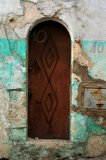
Home
|

